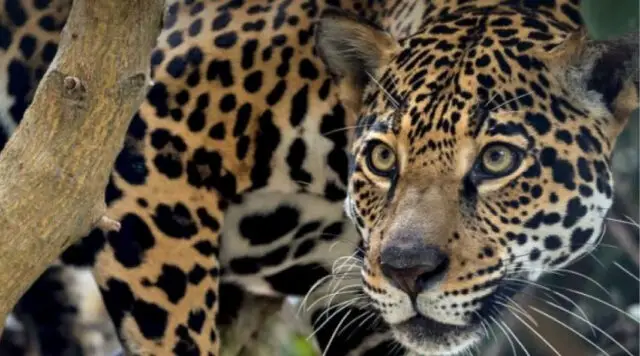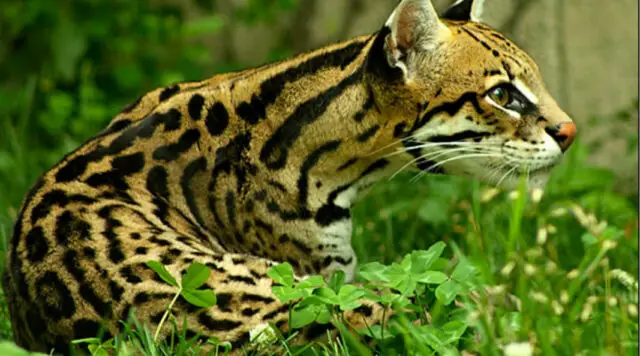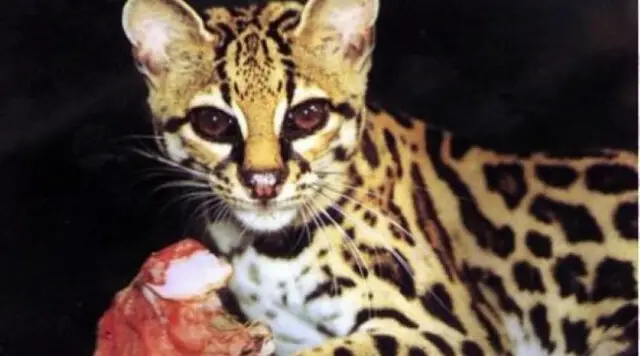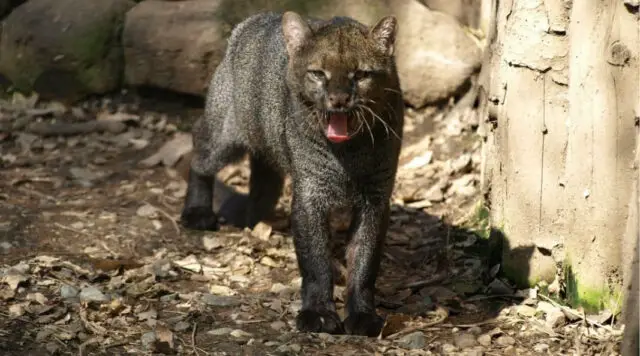Costa Rica has six species of felines, the majority present in our Huetar Norte Region and in danger of extinction. They are the puma, the caucel, the jaguar, the manigordo, the Jaguarundi or León Breñero and the tigrillo.
In recent years these species have been decimated by hunters and ranchers and more recently by human development that steals the habitat of these species for construction. Forests are cut down for agriculture and construction. These species are also threatened on the streets by vehicle drivers who often run over them when they try to cross high-traffic roads.
Environmental authorities seek to make the population aware of the importance of preserving and caring for these species, as well as driving with caution in areas where wild animals cross. The government recently created insurance for ranchers, where in the event that a feline kills an animal, the state can pay it back through insurance.
Caucel (Leopardus wiedii)

The Caucel as it is commonly known, is a nocturnal animal, which inhabits forests with little intervention from humid to dry. It is arboreal, during the day it rests on branches of up to 10 meters. They hunt small rodents, monkeys, hammerheads, sloths, lizards, squirrels, insects, and birds. Their gestation lasts between 76 and 84 days and they give birth between 1 and 2 young.
It is medium in size, slender and with long legs, its dorsal part is pale brown to fawn, with a pattern of rosettes with thick black edges and large ovals with a fawn-brown center. The ventral part is whitish with black spots and stripes. The eyes are large and brown. In previous years the Caucel lived throughout the country but possibly hunting has eliminated it from some areas.
Jaguar (Panthera onca)

The jaguar is an active feline during the day and at night. It inhabits evergreen and riparian forests, mangroves and savannas. It is mainly terrestrial, but like the riverbed it usually rests on the branches of the trees. It feeds on wild pigs, peas, deer, reptiles, monkeys, birds and fish. Its gestation lasts 3 months and it has between 1 and 3 young. It is currently in danger of extinction, mainly due to indiscriminate hunting and the loss of its habitat due to deforestation.
Manigordo
The manigordo is a nocturnal species that inhabits primary and secondary forests. It is terrestrial and likes to rest on fallen logs, hollows and among vegetation. It feeds on rodents, rabbits, anteaters, small reptiles, juveniles, and fish. Their gestation lasts between 79 and 85 days and they have between 1 and 3 young.
Puma (Puma concolor)

The cougar is an active species during the day or at night. It inhabits dry and humid forests, deserts and mountains. It is mainly terrestrial, but is a good climber and rests on rocks, logs and branches. It feeds on hairless foxes, howler monkeys, colorado, bush rats, reptiles, armadillos, peas and its favorite the white-tailed deer. Its gestation lasts between 90 and 96 days and has between 1 and 6 young.
Tigrillo
The tigrillo is a nocturnal and twilight species. It inhabits forest little intervened in height. It is a terrestrial species, but like other cats it is a good climber. It feeds on small mice, lizards, birds, eggs, and amphibians. Their gestation period lasts between 74 and 76 days and they have between 1 and 3 young.
Yaguarundi

The jaguarundí is an active feline during the day. It lives in a wide variety of habitats from arid areas to green forests and adapts to areas intervened by man. It feeds on reptiles, amphibians, rodents, and small birds. This feline is characterized by being more social than other wild cats, its gestation lasts 75 days and has between 2 and 4 young.


